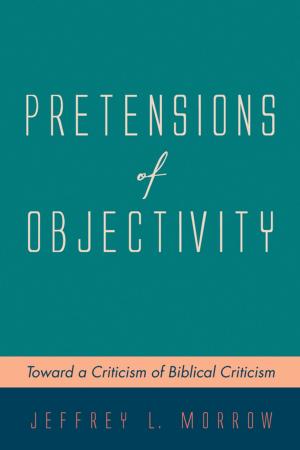| Author: | Raymond Barfield | ISBN: | 9781498292108 |
| Publisher: | Wipf and Stock Publishers | Publication: | March 21, 2017 |
| Imprint: | Cascade Books | Language: | English |
| Author: | Raymond Barfield |
| ISBN: | 9781498292108 |
| Publisher: | Wipf and Stock Publishers |
| Publication: | March 21, 2017 |
| Imprint: | Cascade Books |
| Language: | English |
How do humans explore beauty, virtue, love, justice, and goodness? This book argues that philosophical attention to our lives, shaped in part by our choices, is our instrument for investigating these parts of reality. Constructing a life is a philosophical act. Philosophical acts that are shaped by a life, and that shape a life, constitute philosophical style. Everyone has a philosophical style, which is fundamentally about the way we live in the world through our bodies, our reason, our imagination, and our virtue. It is about what we love and how we are loved. Beauty, suffering, and being in the world are placeholders for everything that makes up our lived experience. As we live our lives between beauty and suffering, we learn most about being in the world. The argument of the book moves from a discussion of philosophical style, through the three placeholders for human experience as they are affected by philosophy (beauty, suffering, and being in the world), arriving at a reworking of Pascal's wager about living in relationship to the presence or absence of God as a way of understanding the commitments that are our only way into the truth of our life.
How do humans explore beauty, virtue, love, justice, and goodness? This book argues that philosophical attention to our lives, shaped in part by our choices, is our instrument for investigating these parts of reality. Constructing a life is a philosophical act. Philosophical acts that are shaped by a life, and that shape a life, constitute philosophical style. Everyone has a philosophical style, which is fundamentally about the way we live in the world through our bodies, our reason, our imagination, and our virtue. It is about what we love and how we are loved. Beauty, suffering, and being in the world are placeholders for everything that makes up our lived experience. As we live our lives between beauty and suffering, we learn most about being in the world. The argument of the book moves from a discussion of philosophical style, through the three placeholders for human experience as they are affected by philosophy (beauty, suffering, and being in the world), arriving at a reworking of Pascal's wager about living in relationship to the presence or absence of God as a way of understanding the commitments that are our only way into the truth of our life.















